Critics 18th century
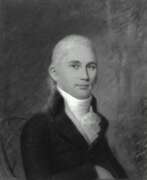

Joseph Dennie was an American writer, journalist, and major literary figure of the early 19th century.
Dennie graduated from Harvard College, became a lawyer, but became active in writing. In 1801, he founded a periodical called The Port Folio, which became the most prominent literary weekly of its time in America. It was also the first important political and literary journal in the United States.
As founder of the Tuesday Club, Dennie was the center of Philadelphia's aristocratic literary circle in the early 19th century and for a time was the leading literary critic in the country. He ridiculed the simplistic and crude nature of Native Americans and opposed democratic innovations. He also encouraged talented young writers.
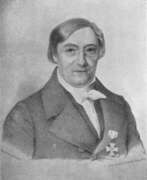

Johann Gottfried Gruber was a German critic and literary historian.
A graduate of the University of Leipzig, Gruber was later appointed professor at the University of Wittenberg, and in 1815 he became professor of philosophy at Halle. Gruber is the author of numerous historical and philosophical works.
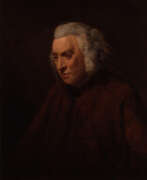

Samuel Johnson was an English writer who made lasting contributions as a poet, playwright, essayist, moralist, critic, biographer, editor and lexicographer. He was a devout Anglican, and a committed Tory. The Oxford Dictionary of National Biography calls him «arguably the most distinguished man of letters in English history». James Boswell's Life of Samuel Johnson was selected by Johnson biographer Walter Jackson Bate as «the most famous single work of biographical art in the whole of literature».
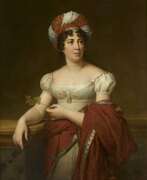

Anne-Louise-Germaine Necker, Baroness of Staël-Holstein, known as Madame de Staël, was a French writer, literary theorist, and publicist.
She was born into a Swiss family where her father was a banker and then finance minister to King Louis XVI, and her mother ran a brilliant literary and political salon in Paris where Voltaire, Diderot, and Hume frequented. Young Necker received a brilliant education, she absorbed the intellectual environment with great curiosity, becoming a witty and well-read conversationalist.
In 1786, she married the Swedish ambassador to Paris, Baron Eric de Staël-Holstein. It was a marriage of convenience, which ended in 1797 formal divorce.
Madame de Staël became known not only for her stunning and versatile works, but also for her enormous influence on the intellectual climate of that 19th century. During her lifetime she was known as a novelist, but she became much more famous as a political philosopher, literary critic, and theorist of Romanticism. Madame de Staël was an implacable opponent of Napoleon I and traveled around Europe for a decade during his reign from 1803. In 1810, the writer published one of her most famous and influential works, On Germany. She returned to Paris in 1814, after the fall of Napoleon, and wrote "Reflections on the Principal Events of the French Revolution."
In her travels, Madame de Staël met many politicians, artists and writers and was known for her cosmopolitanism and feminism. Madame de Staël epitomized the European culture of her time, combining ideas from neoclassicism to romanticism in her glittering salon for leading intellectuals.
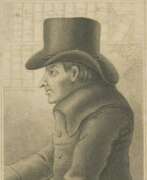

Joseph Ritson was a British antiquarian, critic, writer and editor.
He had a law degree, but preferred to study literary works. Ritson scrupulously searched for factual and other errors in authors to then publish them in his critical materials.
However, Joseph Ritson became famous as an editor of collections of ballads about Robin Hood and old folk literature. In their design they far surpassed anything that had previously appeared in the literary world, distinguished by authorial erudition and accuracy. Ritson also published collections of children's poems.
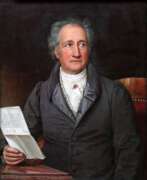

Johann Wolfgang von Goethe, a German polymath and writer, is celebrated as one of the most influential figures in the German language and Western culture. His vast array of works spans poetry, novels, plays, and scientific writings, reflecting his diverse interests and profound impact on various fields.
Goethe's early life in Frankfurt laid the foundation for his diverse interests. After studying law, he gained fame with "The Sorrows of Young Werther," which led to an invitation to the Weimar court. His contributions there were significant, including roles in the ducal council, mining supervision, and cultural endeavors like theater management and the botanical park's planning.
His literary achievements are vast, with notable works like "Faust" and "Wilhelm Meister's Apprenticeship," which delve into human nature and societal reflections. Goethe's "Sturm und Drang" period was marked by intense emotion and a break from traditional forms, influencing subsequent cultural movements.
Johann Wolfgang von Goethe's interest in science is equally noteworthy. He made contributions to biology, zoology, and color theory, advocating for a holistic view of nature and expressing skepticism toward restrictive scientific methodologies. His works in these areas reflect a deep desire to understand and articulate the natural world's interconnectedness.
For art collectors and experts, Goethe's influence extends beyond his literary and scientific contributions. His role in Weimar Classicism and his artistic endeavors offer rich insights into the period's cultural landscape, providing a multifaceted perspective on his legacy.
To stay informed about developments and events related to Johann Wolfgang von Goethe, consider signing up for updates. This subscription will keep you informed about new product sales and auction events related to Goethe's works and influence, offering exclusive insights for enthusiasts and collectors.
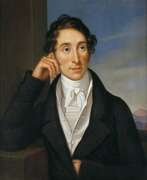

Carl Maria von Weber, full name Carl Maria Friedrich Ernst von Weber, was a German opera composer and conductor during the transition from classical to romantic music, pianist and music critic.
Weber was born into a musical and theatrical family, and his father cherished dreams of making him a second Mozart. The young Weber received his first appointment when he became the musical director of Duke Eugene of Württemberg, for whose private orchestra he wrote two symphonies, then he was secretary at the court of King Frederick I of Württemberg. At the same time he composed musical works, gaining experience and knowledge.
In 1813 Weber was appointed conductor of the opera in Prague, and four years later he was appointed director of the German opera in Dresden. Here he deployed his talents, taking on the entire job of preparing an opera production: he selected the repertoire, staff and actors; he handled the scenery, lighting and staging, as well as the orchestra and singers, taking special care to ensure that each performer fully understood the words and plot of each opera. The composer also found time to compose his own works.
During this period he created the opera The Free Rifleman (1821), where he was able to free German opera from French and Italian influences. The opera was first successfully staged in Berlin and then traveled throughout Europe. "The Free Rifleman" is the most popular German opera written to date, and it marked the beginning of German Romantic opera. Weber also wrote the operas Euryanthe (1823), Oberon (1826), and others.
Carl Weber composed many fugues, sonatas, concertos, and sacred music, and was also one of the significant piano virtuosos and music critics. From 1809 to 1818, he wrote a considerable number of reviews and quite incisive music criticisms. All his activities, music and critical writings promoted the ideals of Romanticism as an art in which feeling prevails over form and heart over head.